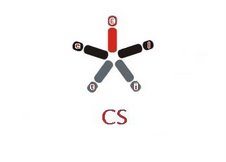Something very interesting we found at www.dnaindia.com
NEW DELHI: First the good news. Starting a company in India has become easier, says the Doing Business, 2007 report, an annual publication of the World Bank and its private sector lending arm, the International Finance Corporation. The process now takes 35 days against 89 days in 2005.
But the bad news remains. India comes last among 175 countries in terms of efficient bankruptcy (closing a business takes 10 years) and is third from the bottom in enforcing a simple commercial contract (56 procedures and four years). Overall, though, India has improved its ranking in ease of doing business, from 138 in 2006 to 134.
What did India do to make starting new businesses easier? The ministry of company affairs’ MCA-21 initiative, for one, which provides a single window for online filing of various forms relating to registration of companies. That apart, notes Rahul Garg, executive director at PricewaterhouseCoopers, some regulatory approvals have been put on the automatic route and various tax-related procedures outsourced.
“The MCA-21 initiative has been a huge change, cutting down registration time and making touts redundant,” commends Anil Bharadwaj, secretary general of the Federation of Indian Small and Medium Enterprises. This was a promise the government had made when the Doing Business in 2006 report kicked off a row over India’s low ranking.
The government kept its promise on this one, but other much-needed reforms are completely stalled.
Closing a business is fraught with problems. Countries where it is easier include Chad, the Czech Republic, Turkey, Ecuador, and Mauritania. A Companies (Amendment) Act for, inter alia, setting up a National Company Law Tribunal (NCLT) to replace the Board for Industrial and Financial Restructuring (BIFR) and speed up the liquidation of companies was passed by Parliament in December, 2002, and received presidential assent in 2003.
Then the Sick Industrial Companies Act (SICA), under which BIFR had been set up was repealed and presidential assent given in 2004. But both these acts have not been notified, because the formation of the NCLT was challenged in court and stays there. So sick companies continue to be referred to the BIFR (which alone can recommend winding up of companies) and cases pile up there.
“This is the only case of a body being kept alive even after the final rites have been done,” rues Kishore Soni, chief executive, Sircons. Or take the issue of reforming the judicial system, which Bharadwaj blames for the trauma of enforcing contracts. When contracts can’t be enforced through courts, firms resort to other means. “There is a cost attached to this and it affects competitiveness,” he contends. Countries that did better than India in enforcing contracts include Sierra Leone, Mozambique, Congo and Chad. The only two countries to do worse were Bangladesh and Timore-Leste.
Garg feels some of the blame lies with the litigation-happy businessmen themselves. “Companies are just not willing to accept arbitration awards and keep appealing,” he rues. The typical life of an income tax dispute case is 15-20 years. Enforcing court awards is even more difficult, with enforcement agencies not being very effective, he points out.
The report identifies reducing tax rates and the administrative hassles that businesses endure when paying taxes as the second most popular reform. The only reform against India’s name is the shift to VAT.
But Vivek Mehra, executive director at PwC, feels this is a step in the right direction but until a national VAT or goods and services tax is introduced, state VAT alone won’t helped integrate the country as a market.
The various state-specific indirect taxes will be a major irritant for a pan-Indian company. There’s also the lack of transparency in tax administration. “The taxman is unfriendly and the tax policy is not business friendly,” he says.
The low ranking of India in Doing Business in 2006 perhaps stung the government into speeding up the MCA-21 Initiative. Industry is hoping the lowest ranking on bankruptcy procedures provoke it to act on this front as well.
Friday, September 08, 2006
Subscribe to:
Post Comments (Atom)




No comments:
Post a Comment